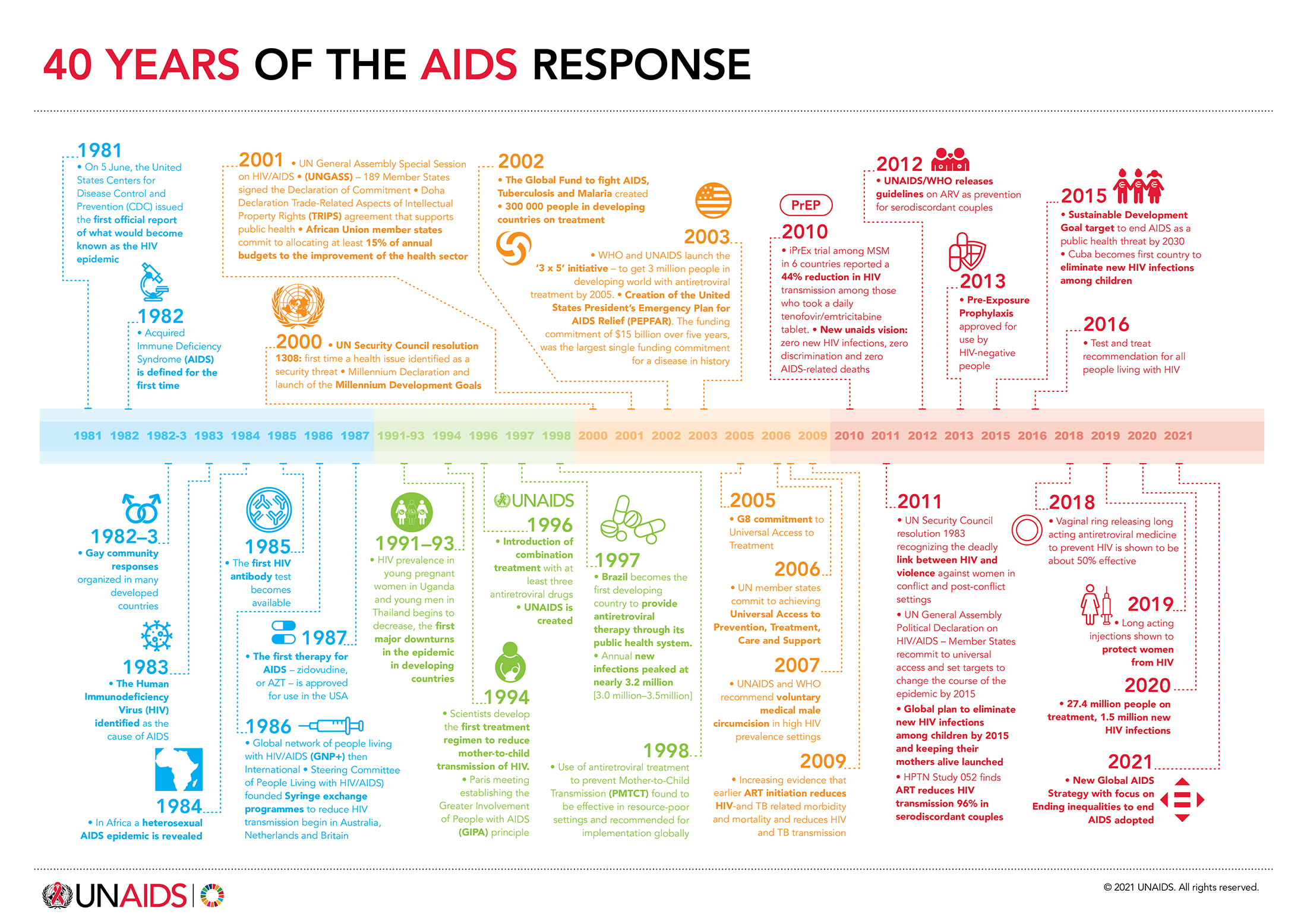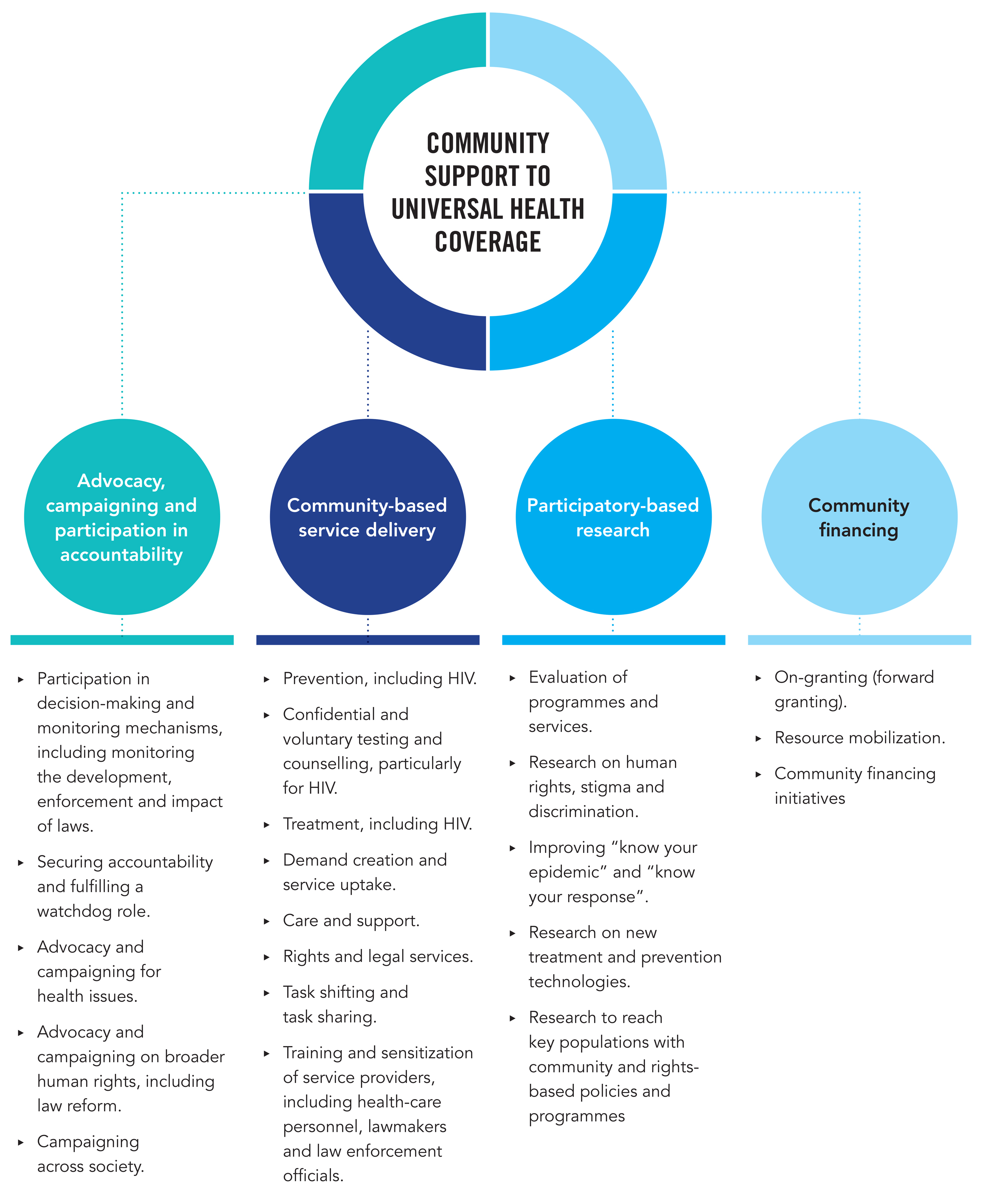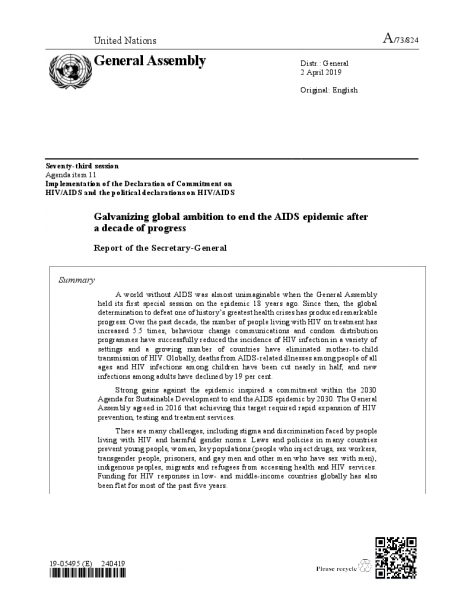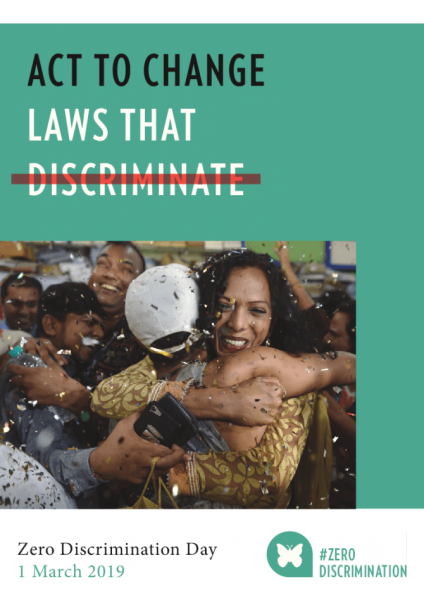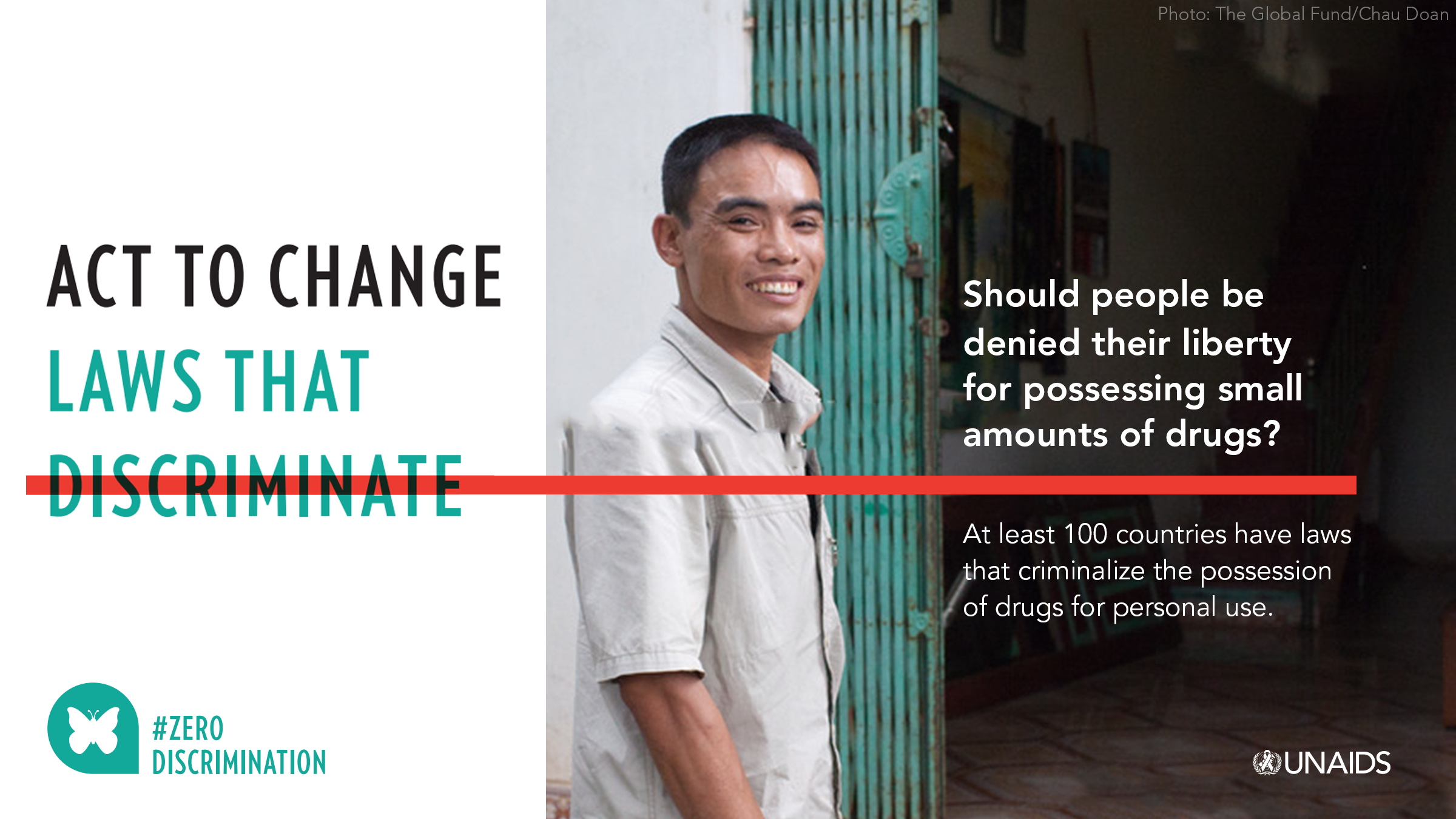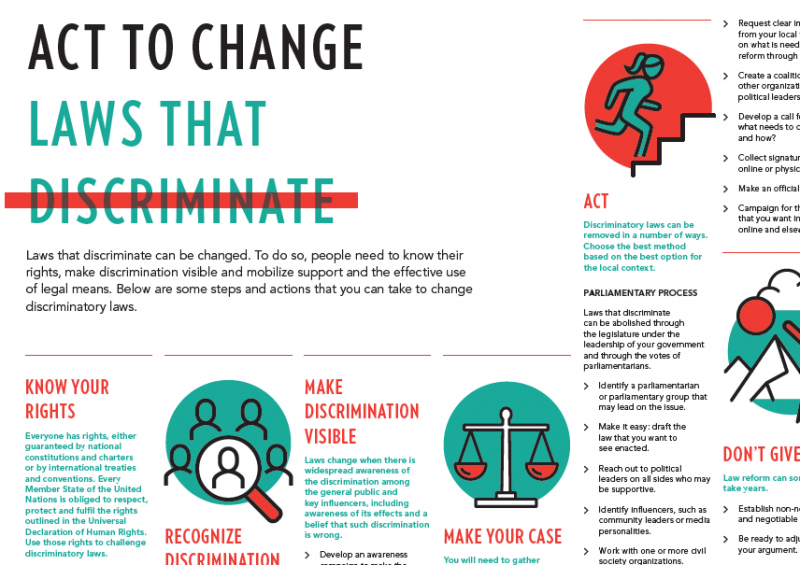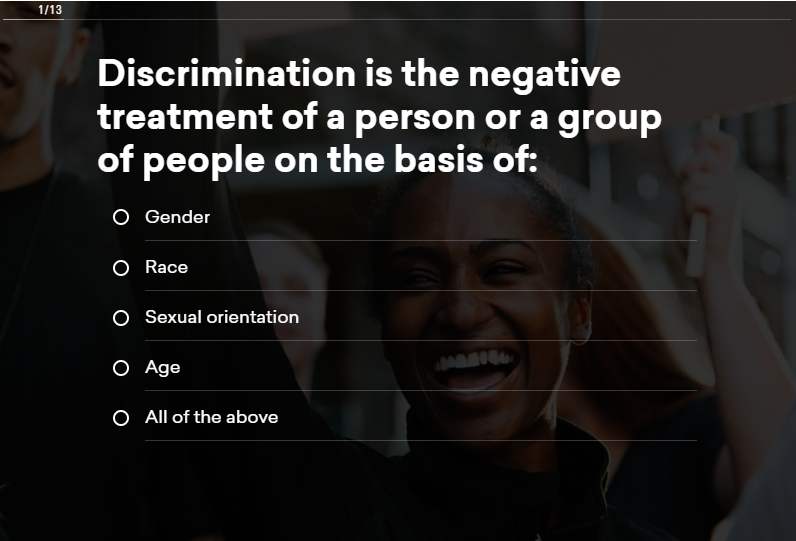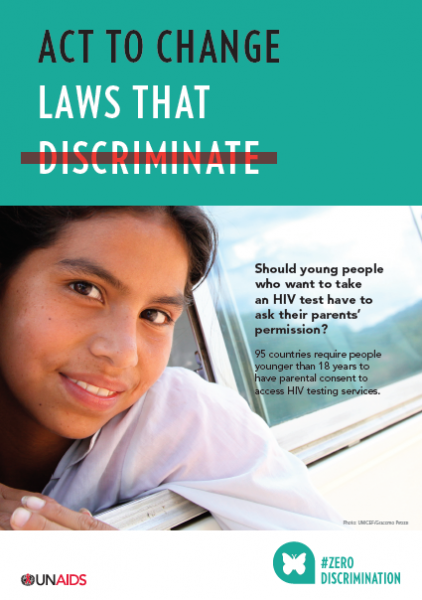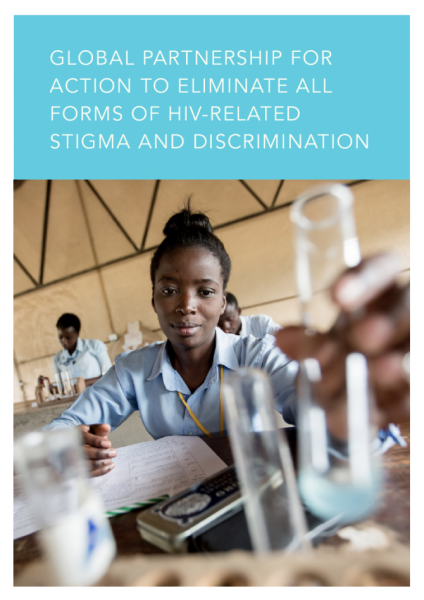NEW YORK/GENEVA, 3 June 2019—A new report from the United Nations Secretary-General, Galvanizing global ambition to end the AIDS epidemic after a decade of progress, has been presented to United Nations Member States during the 73rd session of the United Nations General Assembly. The Member States gathered at the United Nations in New York, United States of America, to review progress and share their own progress and challenges.
“A world without AIDS was almost unimaginable when the General Assembly held its first special session on the epidemic 18 years ago,” said United Nations Secretary-General António Guterres in the report. “Since then, the global determination to defeat one of history’s greatest health crises has produced remarkable progress … and … inspired a commitment within the 2030 Agenda for Sustainable Development to end the AIDS epidemic by 2030.”
The Secretary-General’s report shows that results once derided as impossible in low-income settings have now been achieved following a decade of progress in the response to HIV. Between 2008 and 2017, there was a 43% reduction in AIDS-related deaths, a 45% reduction in new HIV infections among children and a 19% reduction in new HIV infections among adults globally. The number of people living with HIV on treatment also increased, by 5.5 times, reaching 21.7 million of the 36.9 million people living with HIV in 2017.
“The enormous achievements in the response to HIV in recent decades, under the strong leadership of UNAIDS, is one of the best examples of multilateralism in action,” said María Fernanda Espinosa, President of the United Nations General Assembly. “It is most definitely an indication of what we can achieve when we work together around a common cause."
The report shows that progress has been most marked in eastern and southern Africa, where AIDS-related deaths fell by 53% and new HIV infections among adults and children fell by 36%. An epidemic that once killed more than a million people in the region per year now claims fewer than 400 000 lives per year.
In other regions of the world, including Latin America, the Caribbean, Asia and the Pacific, western and central Europe and North America, increases in the coverage of HIV testing and treatment services have achieved significant reductions in AIDS-related deaths over the past decade. Most of those regions have also experienced declines in new HIV infections.
Notable exceptions are eastern Europe and central Asia, where the annual number of new HIV infections has risen by 30% since 2010, with an estimated 960 000 people newly infected over this time, and in the Middle East and North Africa, where deaths from AIDS-related illnesses increased by 11%, an estimated 140 000 people newly infected, over the same period.
The report notes that services focused on key populations within those regions are few and far between, and harsh punishments for same-sex sexual relationships, drug use and sex work in those regions and elsewhere are proving to be formidable barriers to the few services that are available.
In western and central Africa, insufficient domestic funding, weak health systems, formal and informal user fees for health care, humanitarian situations and high levels of stigma and discrimination continue to undermine efforts to scale up HIV testing and treatment.
Many challenges remain, including stigma and discrimination faced by people living with HIV and harmful gender norms. Laws and policies in many countries prevent young people, women, key populations―gay men and other men who have sex with men, sex workers, transgender people, people who inject drugs and prisoners and other incarcerated people―indigenous people, migrants and refugees from accessing health and HIV services.
Funding for HIV responses in low- and middle-income countries globally has also remained flat for most of the past five years. In 2017, donor and domestic investments in low- and middle-income countries were US$ 20.6 billion, about 80% of the 2020 target.
“As the Secretary-General’s report makes abundantly clear, to protect the gains we have made and to tackle the challenges that stand in the way of our promise to end AIDS by 2030, we need to firm up our resolve, strengthen our partnerships and say no to complacency,” said Gunilla Carlsson, UNAIDS Executive Director, a.i. “Let’s start with a successful replenishment that results in a fully funded Global Fund to Fight AIDS, Tuberculosis and Malaria that will enable it, along with its range of partners, including UNAIDS, to continue to deliver evidence-informed, people-centred and human-rights based support to the people and communities who need it the most.”
The report outlines that there is an important opportunity to seize the growing momentum to achieve universal health coverage, a core principle of which is leaving no one behind. Collaboration between health systems and community groups has been shown to reduce stigma and discrimination and to help to deliver services to the people in greatest need―a key recommendation of the report is the strengthening of the vital role that community groups play in the AIDS response.
In the report, the United Nations Secretary-General urges Member States to adopt the following recommendations to galvanize political will, accelerate action and build the momentum necessary to reach the 2020 targets agreed to by the United Nations General Assembly in the 2016 United Nations Political Declaration on Ending AIDS: (a) reinvigorate primary HIV prevention; (b) diversify HIV testing and differentiate the delivery of health care to reach the 90–90–90 targets; (c) establish enabling legal and policy environments in order to reach marginalized and vulnerable populations; (d) mobilize additional resources and allocate them where they are most needed; (e) support communities to enable them to play their critical roles; and (f) incorporate a comprehensive HIV response into universal health coverage.
UNAIDS
The Joint United Nations Programme on HIV/AIDS (UNAIDS) leads and inspires the world to achieve its shared vision of zero new HIV infections, zero discrimination and zero AIDS-related deaths. UNAIDS unites the efforts of 11 UN organizations—UNHCR, UNICEF, WFP, UNDP, UNFPA, UNODC, UN Women, ILO, UNESCO, WHO and the World Bank—and works closely with global and national partners towards ending the AIDS epidemic by 2030 as part of the Sustainable Development Goals. Learn more at unaids.org and connect with us on Facebook, Twitter, Instagram and YouTube.



